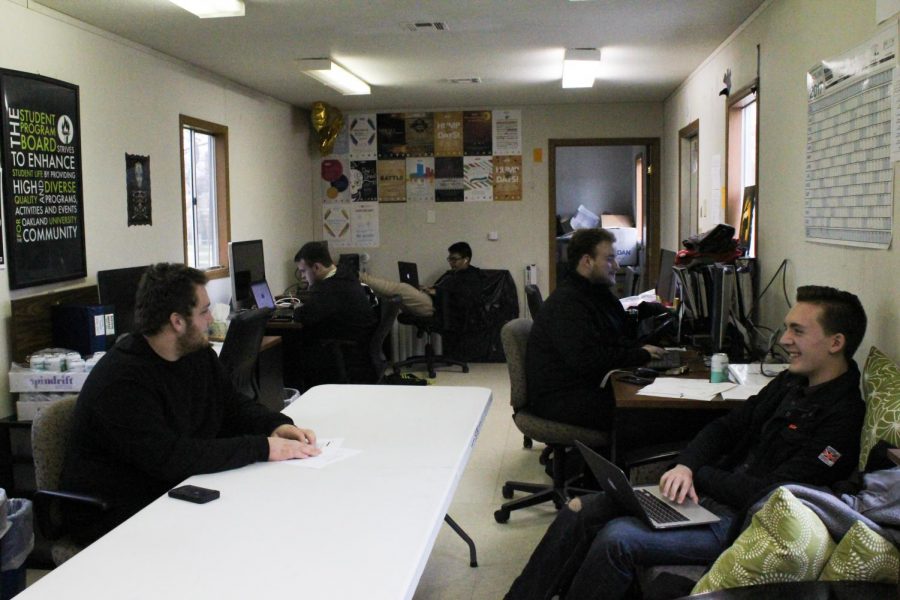Life in the “trailer park” has taught people a thing or two
The OUSC, SPB, and CSA were all forced to move due to flooding and have missed working in the OC basement.
It was never a secret that the Oakland Center renovation was going to be inconvenient for those who work inside the building. Offices had to move, and makeshift walls have been set up to separate students from the construction sites. The building, for the time being, ironically feels smaller but we all know it is going toward the greater good.
Nobody was expecting the basement of the OC to flood over the summer. Some of the spaces near WXOU and The Oakland Post got by with minimal water damage, but the Center for Student Activities, Oakland University Student Congress and the Student Program Board had to pack up their offices and move into trailers while the Gender and Sexuality Center moved to Vandenberg Hall.
We’re still not sure what the extent of the loss was, but much of their equipment and supplies were destroyed.
The move initially caused some confusion for the students who frequently visit those offices, but that has dulled for the most part (students at least know the free Scantrons are no longer in the basement.) The three groups are content being in the space they call “the trailer park” because they know it won’t last forever.
However, the original plan to get them back in the basement by January has been pushed back indefinitely. They have no idea when they will be able to reclaim their old offices, which has left them with collective frustration.
I was chatting with CSA Director Jean Ann Miller and OUSC President Lena Mishack last week and they both gave me a wry smile when I asked how working from a trailer separated from the OC has been. They miss being near everyone—basement dwellers get pretty close.
Miller was talking about how she felt after the hurricanes struck various parts of the United States. She said she could empathize with the survivors but the event got her thinking about all she has.
“It’s made us understand people who have been through floods and natural disasters,” she said. “We’ve been through that on a micro scale. Though it’s not the same, we can understand how they’ve felt and how life-altering it must be for them.”
One of the things Mishack and Miller both kept mentioning was how the community they felt from the other offices that had to move. They have their frustrations, but the built-in support system they have from the close location of the trailers is what makes the whole thing enjoyable.
This community feeling of these offices and the rest of the SAFAC organizations has been part of the reason SAFAC has tried to help those affected by the hurricanes so they can feel like someone is there for them, too. Though it is no massive amount, they have done what they can to help the people who experienced what they have on a much larger scale.
It’s funny how a small tragedy close to home can change your perspective and motivate you to help someone.






